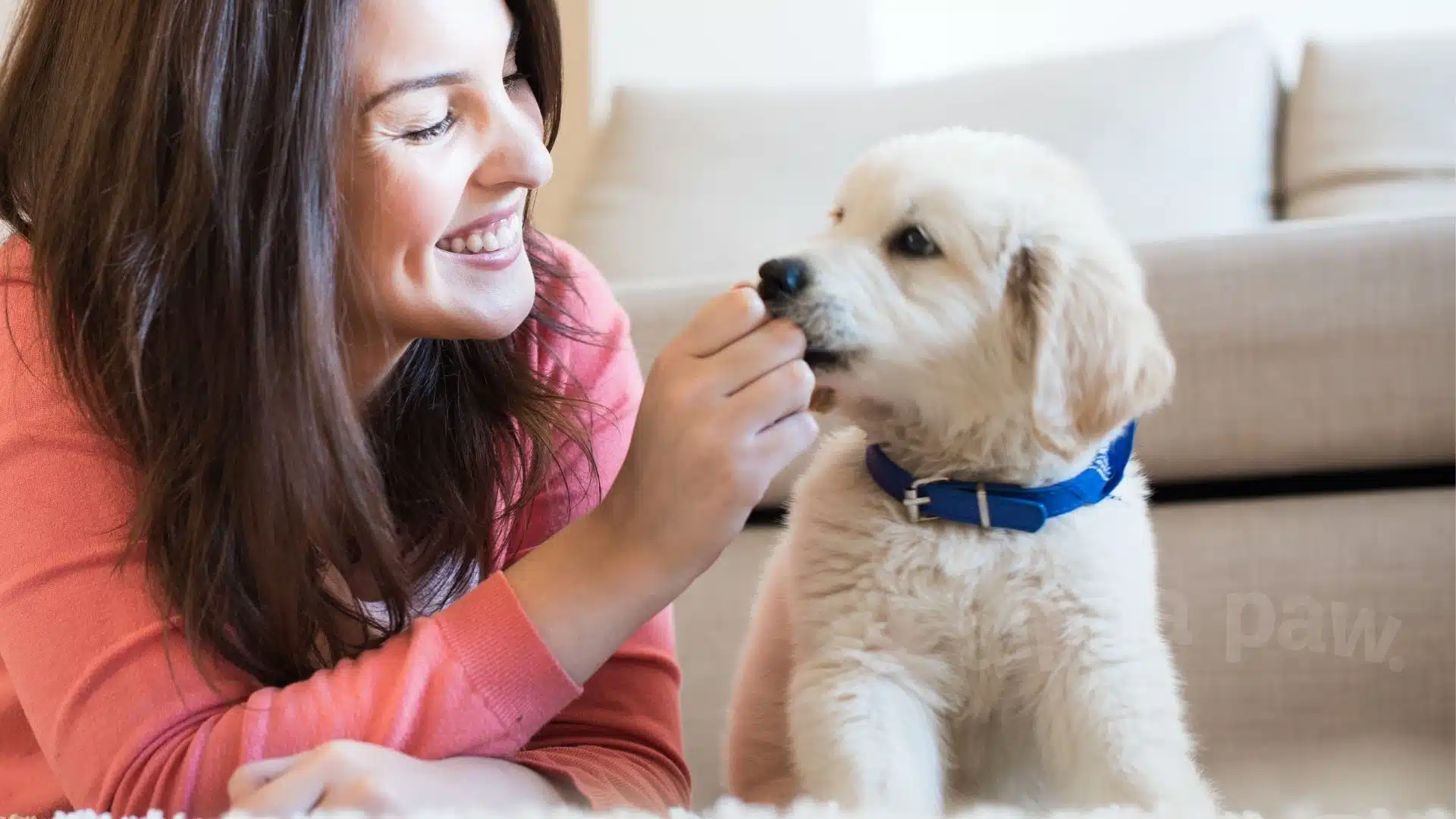

If your pup was born healthy, without any defects or issues, you want to keep them that way! Some of the most important puppy vaccinations are given to a dog until they reach the age of three months. Vaccines can be split up into two categories: core and non-core. The first are practically mandatory as they protect puppies against highly contagious and potentially deadly diseases such as Parvo or Distemper, and the second are optional but can still be recommended by vets depending on certain factors.
For example, even if the kennel cough shot is not among the core vaccines that a puppy should get, a veterinarian can still recommend it to pet parents who have many dogs that share the same living space.
Another situation would be for times when the pet owner has to go on vacation, and the puppy needs to be kept in a kennel — since in large canine communities with many dogs, the risk of catching kennel cough is very high, a dog should be vaccinated against this disease just to be on the safe side.
In the following sections, we will go into detail about which core and non-core vaccines you can expect to be recommended to your puppy.
We’ll also give you an example of an ideal shot schedule but do keep in mind that your puppy’s vaccinations can differ depending on the biological product used by the vet and the age of your pup.

Core vaccines are very important as they can protect your puppy against fatal diseases such as Parvo, Distemper, Adenovirus, and Rabies. While the first three cannot be transmitted to humans, the last can.
To date, there have been no cases of rabies survival in people, so getting your pup immunized against this disease can not only protect them but also you and your family.
Parvo, Distemper, Adenovirus (CAV-2), and Parainfluenza vaccines are usually grouped together in a product called ‘DHPP.’ It depends on the puppy’s age, but if they are old enough, the vet might administer a polyvalent vaccine from the beginning, which can shorten the vaccination schedule.
Another note that we have to make here is that very young puppies are usually administered a vaccine containing just one or two strains of the modified virus (or a protein from its membrane) so as not to trigger a very powerful immune system response.
While the puppy’s immune system is not going to recognize the biological product as a pathogen, vaccines can still cause some symptoms such as fever or lethargy.
Vets often choose to wait until puppies are at least six weeks old before vaccinating them against Parvovirus and Canine Distemper because very young puppies have a high risk of becoming ill after taking them. The second dose can offer more protection, such as against Canine Hepatitis, too.
There are many non-core vaccines, and your veterinarian can recommend some without necessarily mentioning others. While it would be great if you could afford all of the puppy shots, including the non-core ones, sometimes dog owners don’t have the budget to do that. Non-core vaccines can protect your dog against the following diseases:
Depending on where you live and whether there have been cases in your area of one of these diseases, your vet will advise you to get your pup vaccinated against it.
Even though there isn’t enough data until now, it’s safe to assume that most of the infectious conditions that we have mentioned here cannot be transmitted to humans with the exception of one – Leptospirosis. In both our canine friends and us, Leptospirosis causes severe kidney and liver damage.
Elevate your dog’s mobility and overall well-being with our top-notch selection of supplements. Specially formulated to support joint health, reduce stiffness, and enhance flexibility, these supplements are essential for dogs of all ages, particularly for those with an active lifestyle or facing the challenges of aging.
The ideal schedule for your puppy’s vaccinations begins at six weeks of age. It is assumed that if the puppy’s mother was vaccinated, she could transmit a series of antibodies to the pups through her milk. That is why vets recommend that the typical puppy shots start being administered around six weeks of age.
We’ve showcased the schedule below along with what vaccines puppies need for each age.
It’s important to note that when you adopt a puppy, they might have already received the first vaccine. The breeder has to give you this information and specify the exact type of vaccine that was administered, the manufacturer, and the diseases it protects your puppy against.
More often than not, vets prefer to continue the schedule with the same brand of vaccine to make sure that the same modified virus strains are being used. This gives a higher chance that the puppy’s vaccinations will truly give them the immunity they need.
6-8 weeks
The two most important puppy shots that dogs can get when they are six to eight weeks of age are those against Parvo and Distemper. An optional one would be the shot against Bordetella (kennel cough) which can be important for a dog living with many other canine friends.
10-12 weeks
The standard DHPP vaccine is administered. The puppy’s vaccinations usually include protection against the same two diseases (Parvo and Distemper), but also Adenovirus (which causes canine hepatitis) and parainfluenza. Non-core puppy shots can range from those against kennel cough to Lepto and Lyme.
16-18 weeks
Besides the polyvalent vaccine that your puppy can expect and needs to be administered, they will also get a rabies shot. The same non-core vaccines that we have already mentioned can be administered around this time.
12-16 months
At or near your puppy’s first birthday, the most important puppy shots that you can get are a polyvalent vaccine and a rabies shot. In fact, the latter is required by law in most countries, and even if there might not be people checking whether you’ve immunized your puppy against rabies, if your dog ends up biting someone (even in self-defense), you could be risking serious legal issues.
One of the first questions that a person can ask after such an event is if the dog has had the rabies vaccine or not — otherwise, they might have to get immunized against it.
Both adult dogs and puppies need shots, whether puppy vaccines or booster shots. Otherwise, they can simply get sick. Even if you might think that you do your best at keeping your dog as healthy as possible, you take them to the pet hospital every year for a check-up, you give them good-quality food, and you make sure that their living space is sparkling clean, if your dog is not vaccinated, they can always catch a contagious condition and die.
On top of that, it is much easier and less expensive to prevent a disease than to have to treat it. You can effectively go into debt if your dog gets Parvo and needs weeks and weeks of treatment in the pet hospital. And even then, you cannot know for sure if their health is going to improve — they could die even with all the efforts that veterinarians might make in the way of saving them.
If you care for your puppy’s health and you want to enjoy your dog’s life, love, and companionship for many years to come, make sure their vaccinations are done according to your vet’s recommendations.
But just to give you several examples of what can happen if young puppies aren’t given their shots, we’re going to describe the symptoms of several of these contagious conditions that puppies can get when they aren’t immunized.
Parvo is a highly contagious viral disease that affects all dogs, but puppies in particular. The virus mostly attacks the cells that are present in the intestinal lining and stops them from being able to absorb nutrients.
The common symptoms of parvovirus are vomiting, diarrhea, fever, lethargy, and loss of appetite. Unvaccinated puppies have a high risk of contracting the disease from other infected puppies or adult dogs.
While the health of adults might make them somewhat capable of fending off the attack of the virus, the immune system of puppies is not capable of doing the same. The risk of death is especially high in puppies that are six to eight weeks of age.
Parvovirus is transmitted through bodily fluids, particularly feces and vomit. Most dogs die due to extreme dehydration rather than the disease itself. Offering your dog protection against Parvovirus is extremely important so you shouldn’t have any doubt when it comes to the Parvo vaccine.
Like the disease that we have already described, Distemper is highly contagious. Canine Distemper: Symptoms, Causes, Treatment & Prevention It affects a variety of animals, not just puppies and it’s been documented in species such as raccoons, ferrets, or skunks.
The worst thing about Distemper is that it tends to affect a range of organs. There are several forms that puppies can develop and one can lead to another. For example, if a pup develops the gastrointestinal form, they could also develop the respiratory one and the other way around, ultimately leading to the form that affects the central nervous system, which is lethal.
Distemper shots are very common and it’s quite likely that your veterinarian is going to recommend one as part of the standard puppies’ vaccinations schedule.
This disease is caused by Canine Adenovirus 1 and it is highly contagious; in young puppies, of eight weeks of age or 16 weeks of age, for example, it can be lethal.
Compared to other contagious conditions, this one has somewhat confusing symptoms. A puppy can show a variety of signs ranging from an inexplicable fever, loss of appetite, an increased heart rate, abdominal pain, vomiting, diarrhea, and extreme thirst
The worst thing about canine hepatitis is that it usually causes long-term kidney and liver damage, as well as vision problems. So, even if your puppy does manage to recover, they might be left with some symptoms that could affect their normal life in the long run.
Commonly known as dog flu, canine influenza is a disease that can affect any dog, regardless of age, health status, gender, or breed. Compared to other infections, this is a relatively new disease, and a vaccine was introduced in June of 2009. It is not a core vaccine, however, so a puppy’s vaccinations are not going to include it.
However, certain risk factors do exist and since dog flu is also contagious, it is more common in kennels or large canine communities. It typically causes respiratory symptoms (pneumonia) and can lead to death in dogs that have a poor immune response.
Leptospirosis is a bacterial infection that can quickly spread through a dog’s bloodstream. It can affect dogs of all ages, so it doesn’t matter if your puppy is five months of age or five years of age. The bacterium can be found in many bodies of water in nature which could have been contaminated with the urine of infected animals.
This bacterial infection can easily be passed on to humans, which is why we recommend vaccinating your dog not only for their protection but also for your own.
Everyone’s heard that dogs have to be vaccinated against rabies, but not only them. Almost all animal species have to be immunized against rabies as it is not only highly infectious and can easily be transmitted to humans, but it is also incurable.
Like leptospirosis, dogs can get rabies from wild animals by coming in contact with their bodily fluids. It is true that the incidence of this disease has dropped in the past years due to booster shots and the standard puppy vaccination schedule that most vets recommend. However, the rabies vaccine is never going to be one that you can skip as this is a very dangerous zoonotic disease.
Kennel cough is a disease caused by Bordetella bronchiseptica, a bacterium that’s extremely contagious, especially in spaces where many dogs live. For this reason, this disease affects the health of dogs that are kept in kennels (just like its name suggests).
While it shouldn’t normally affect a dog’s immune system to the point that it causes death, kennel cough can be potentially lethal for some age categories such as puppies and senior dogs as their immune response is lower than that of healthy adult dogs.
The vaccine against kennel cough is a non-core one, which is why many pet owners decide to skip it and ask their vet to immunize their dog against Bordetella only when they want to leave on vacation and are considering boarding their puppy.

Do dogs really need annual vaccinations? The short answer to this question is a clear yes. While not all vaccines offer your pup immunity against diseases for just one year, there is one exception. Some rabies vaccines can be better and protect your dog for a period of two years instead of one.
However, the standard virus strains included in the polyvalent vaccine do not last longer than a year, so the shots have to be repeated yearly. There is a theory according to which older dogs have better immunity against contagious diseases compared to younger ones, but this only works if they were immunized every year.
Since this is a question everyone wants to know the answer to if you have a seven-year-old dog and you’ve vaccinated them every year, but you skip an appointment.
Then, you take your dog to the vet clinic several months after the due dates, it’s quite likely that your dog is not going to become infected with Distemper during those months. But just to be on the safe side of things, vaccinate your dog every year.
Puppy vaccination shots aren’t as expensive as you might think.
In some areas, if you don’t have the budget, you can simply do a bit of research online and find out whether there aren’t any animal hospitals around you that can administer initial puppy vaccinations for free.
A puppy’s complete core vaccine schedule can set you back around $100 to $150 depending on the types of puppy shots that are administered on each visit to the vet. Paying for the entire first-year plan is usually better than paying for each vaccine individually (vets can offer you better prices if they know you’re going to come back).
A core polyvalent vaccine that can be administered yearly can be around $50-$70 depending on what it contains. Usually, dogs are given a DHPP shot and rabies one after their first year, so after completing their initial puppy vaccinations schedule.

The answer to this question is yes, but it can only happen on occasion. A vaccine is a biological product, which means that it can trigger a number of reactions in an animal’s and human’s body. If you’ve ever had a shot before, you probably know what side effects you can expect from your puppy.
Drowsiness, fever, and lethargy are the most common adverse reactions that puppy shots can cause, but it is always a good idea to keep a close eye on your pup for the first 24 hours following the administration of the vaccine.
While the anaphylactic shock is extremely rare in almost all puppy vaccinations, it cannot be overruled, especially if your dog has never had a vaccine before. For this reason, we recommend that you stay at the animal hospital for a minimum of 15 to 20 minutes after their first vaccine is administered.
If something does happen and your pup has an anaphylactic reaction, your vet can quickly act and give them an intravenous shot of adrenalin.
Caring for your four-legged buddy is a lifetime job, and it should be a job that is done with love. Preventative measures such as regular vet visits, a grooming schedule, and regular dental visits will add years to your pup’s life!
If you enjoyed reading this article, head over to our Vet Corner where more articles can be found.
Most of us train our dogs when they are puppies to jump up on furniture. We think it’s harmless (and easier than always lifting them), but for dogs, couches and beds are very high compared to the size of their bodies.
Every time they jump it compresses their back and applies enormous force to their joints.
It’s no wonder that an incredible 80% of dogs experience arthritis or joint pain by only 7 years old.
Luckily, there is a vet-recommended solution.
It’s the PawRamp by Alpha Paw. An adjustable ramp that allows dogs to safely get on and off couches and beds. PawRamp makes joining you in bed or on the couch effortless and fun.
As a bonus, you can use code SAVE35 to get $35 off the PawRamp today.

The medical, nutritional, or behavioral advice we provide is intended for informational and educational purposes only. Our editorial content is not a substitute for formal or personalized medical advice from a veterinary professional. Only board-certified veterinary specialists who have examined your pet should diagnose medical conditions, provide personalized treatment, or prescribe appropriate medication. For questions regarding your pet’s health, or if your pet is exhibiting signs of illness, injury, or distress, contact your veterinarian immediately. Never disregard professional medical advice or delay in seeking it because of something you have read on our site.